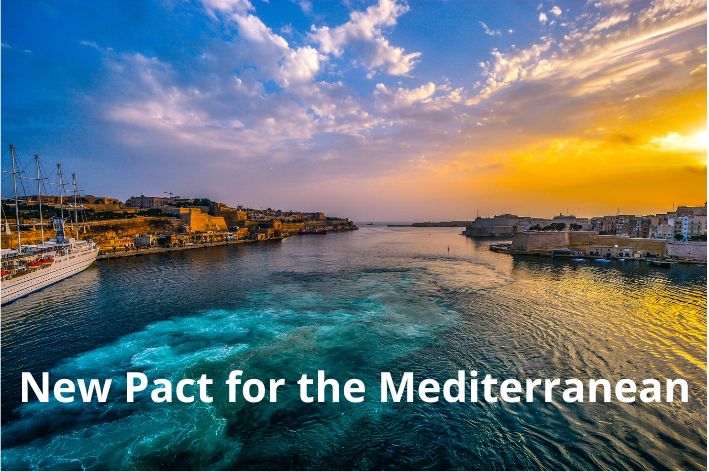The European Commission is advancing its cooperation with Southern Mediterranean countries through the New Pact for the Mediterranean. This initiative focuses on key areas such as economic growth, job creation, regional security, and stronger people-to-people ties—placing particular emphasis on youth engagement as a cornerstone of long-term stability and development.
On 4 June, local and regional leaders from both EU and Mediterranean partner countries met to discuss how the Pact can better reflect the priorities of cities and regions. The event – organised by the Commission for Sustainable Territorial Development of the Euro-Mediterranean Regional and Local Assembly (ARLEM) in Brussels – explored strategies to enhance EU cooperation with Southern and Eastern Mediterranean neighbours.
In addition to shaping the Pact’s objectives, the meeting served as a platform for the European Committee of the Regions (CoR) and ARLEM members to promote a more integrated approach to civil protection, and to align on shared priorities ranging from democratic governance to resilience and sustainable development. Later this year, ARLEM will publish a report capturing the perspectives of local and regional authorities from across the Mediterranean and the EU.
A key outcome was a renewed call to systematically involve local and regional authorities as “co-leaders” in shaping Euro-Mediterranean cooperation. Co-rapporteurs, working closely with associations of local and regional governments, emphasised the need for a structured and participatory role for municipalities and regions in the EU’s Mediterranean engagement.
The adoption of the New Pact for the Mediterranean signals a strategic shift, with implications for stakeholders in the Adriatic and Ionian Macro-Region. The recently approved Revised EU Strategy for the Adriatic and Ionian Region Action Plan outlines priorities such as a sustainable blue economy and improved regional connectivity—both of which rely on enhanced cooperation with neighbouring Mediterranean countries.
Youth engagement will also play a pivotal role in fostering inclusive growth and cross-regional collaboration. By empowering young people from both Europe and the Southern Mediterranean, the Pact aims to support youth-led innovation, leadership, and active participation—ensuring their voices shape the region’s future.
The New Pact for the Mediterranean is expected to be formally adopted in the third quarter of 2025.
